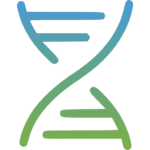The art of conversation is gradually fading as technology replaces face-to-face interactions with short text messages and emoticons. Businesses are continually looking to automate processes, boost efficiency, and find technology-enabled solutions to solve their people management and development challenges. But are we forgetting the fundamentals of good leadership by neglecting to have development conversations?
The Importance of Development Conversations
As a technology company, we are certainly not technophobic, but we do think that designing technology to increase and improve human interaction should be a fundamental principle. It is way too easy to value efficiency over effectiveness.
If you are responsible for managing people, then you can’t avoid having development conversations with them. These conversations might happen in-person, over video calls, on the phone or via email. It may be many times a day or a few times a week. But here’s the thing: those conversations reveal a lot about how you perceive the other person.
If your approach is impersonal and directive (bossy), don’t be surprised if people follow your orders and then wait for further instruction. If you’re solely focused on your own needs, you can expect the other person to do the same. If you dodge certain topics, brace yourself for other filling in the blanks with their own (usually incorrect) assumptions.
Engaging in development conversations communicates more than just words; it conveys how you feel about others, what you value, what motivates you, how much they should trust you, and many other clues that define your relationship with them.
Now, let’s delve into what leads to great development conversations:
Start with a Purpose
Before initiating a development conversation, explain why you’re having it. Many people associate development conversations with negativity because they’re often avoided. Scheduling a “One-on-one conversation” in someone’s diary without warning is like saying, “We need to talk”, which usually implies something negative. Be clear that the purpose of the conversation is to help them reach a meaningful goal or overcome a challenge.
Ask Questions for Clarity
Let’s say you’ve identified ineffective behavior. The starting point of a development conversation is to accurately identify what the ineffective behavior looks like, understand when it happens (like when they are under pressure), how the person normally reacts (perhaps by becoming defensive), who amplifies the response (maybe senior executives) and how they feel (anxious, anyone?). Each answer helps them understand their reactions better and pinpoint the root cause of their ineffective behavior.
Aim for consensus
Change happens when we acknowledge the need for it and take responsibility for it.
Look for specific actions they can and are willing to take, and find out how you can support them.
Lock in a commitment to effect change
Why as a leader, YOU SHOULD develop this superpower
Great people developers take a genuine interest in others. They recognize that they didn’t get to where they are on their own, and they want to “pay forward” the time that others have invested in them. Helping others unlock their talent and potential is an enormously rewarding task, and it doesn’t require much time—just the right attitude. If you look back on your own career and recognize someone with this superpower in your past, you owe it to them to “pay it forward”.
Ready to unlock your leadership potential and enhance your leadership development skills? Start by scheduling a development conversation with a colleague or team member today. Remember, great leaders aren’t born; they develop their superpowers over time. By investing in others, you’ll not only improve their performance but also foster a culture of growth and collaboration within your organization.
Want to explore more strategies for effective development conversations? Contact us for a free discovery session where we can unpack what specific challenges are preventing you from developing a thriving People Ecosystem. Don’t miss the opportunity to make a positive impact on your team and organization. Start your journey towards becoming a great people developer today!
Enable your business with the right solutions to have effective development conversations.
We’re turning businesses into resilient People Ecosystems.






